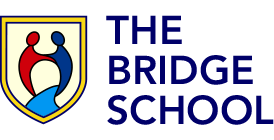Children attending our school will usually require augmented and modified curriculum opportunities including an overarching mobility curriculum and a sensory experiential curriculum for our more profound learners. The Bridge School underpins all of its curriculum delivery through continually developing its communication work so that pupils may access their learning in a way personalised to their needs.
We are passionate about meeting the needs of those children with the most complex needs. Our staff provide a caring and safe learning environment and work in partnership with our parents and carers to ensure that all our children are able to reach their full potential.
At The Bridge School the staff and children promote and practice British Values across the curriculum and in all we do every day as part of our immersion in the principles set out in the Birmingham Curriculum Statement.
School Organisation
Although wherever possible, classes consist of pupils from a single year group, numbers occasionally dictate that children from two or more year groups are combined to form a single class. Whether or not this is the case, Nursery and Reception pupils are taught in an Early Years group and a separation is always maintained between children who are at Key Stage One of the National Curriculum and those who are at Key Stage Two.
On average there are ten to twelve pupils in each class group. Classes may be of mixed ability, pupils are grouped within their class for teaching purposes and pupils are re-grouped to form sets based on ability for phonics.
Support staff are assigned to each class group and higher levels of support are provided for classes in which younger or more dependent pupils are placed. Class teachers assisted by their support staff are responsible for the pastoral care of all children in their teaching group.
